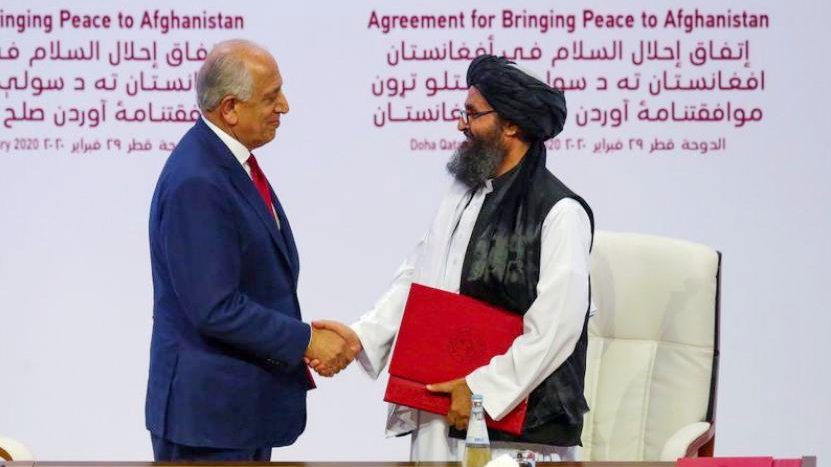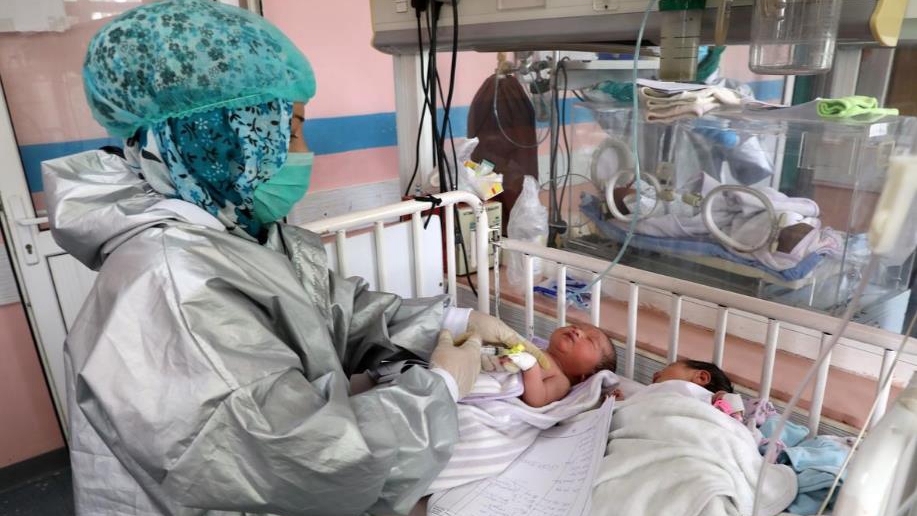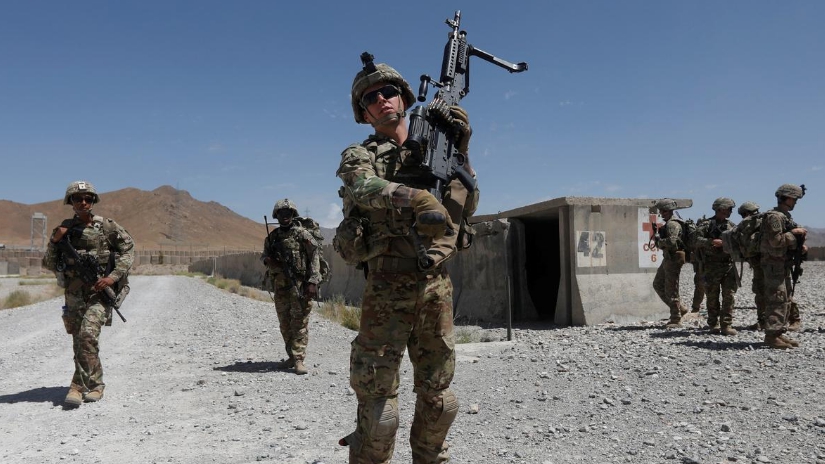
Two brutal attacks this week have laid bare major weaknesses of the U.S.-Taliban troop withdrawal pact: Nothing in it obliges the Taliban to prevent such massacres and the Afghan government's ability to thwart them will only wane as U.S. troops pull out.
The pact is ultimately supposed to promote peace between the Afghan government and the Taliban, which denied carrying out a Kabul attack in which three gunmen disguised as police killed 24 people, including two babies, at a Kabul maternity ward and a suicide bombing in eastern Afghanistan that killed 32.
The key provisions of the February 29 agreement – to which the Afghan government was not a party – involved a U.S. commitment to reduce its military footprint in Afghanistan to 8,600 by mid-July and, conditions permitting, to zero by May 2021.
In return, the Taliban promised, among other things, not to allow "its members, other individuals or groups, including al Qaeda, to use the soil of Afghanistan to threaten the security of the United States and its allies."
But the agreement says nothing about attacks on Afghan civilians such as the two that occurred on Tuesday.

An Afghan nurse observes newborn children who lost their mothers during an attack at a hospital in Kabul, May 13, 2020. /Reuters
An Afghan nurse observes newborn children who lost their mothers during an attack at a hospital in Kabul, May 13, 2020. /Reuters
"There's nothing in our peace agreement with the Taliban that would preclude them from killing Afghans," said Democratic U.S. Representative Tom Malinowski, a former top State Department official for human rights.
"And of course the moment we're out, there's no practical deterrence either," he added.
U.S. Special Representative Zalmay Khalilzad, architect of the deal, acknowledged it did not bar attacks on Afghans and said it would be best if both sides began talks and efforts to combat such attacks while U.S. forces are still there.
"The agreement does not specifically (call) for them not to attack Afghan forces, said Khalilzad. However, he said the Taliban committed to reducing violence and that a ceasefire would be among the first topics in intra-Afghan negotiations.
It's reported that the Taliban has been careful not to attack U.S. and coalition forces, but have mounted more than 4,500 attacks in Afghanistan, a sharp increase in violence here in the first 45 days after signing the agreement.
More than 500 civilians were killed in Afghanistan in the first quarter of 2020 as violence raged even after the pact was struck, according to the United Nations.

U.S. troops patrol at an Afghan National Army (ANA) base in Logar province, August 7, 2018. /Reuters
U.S. troops patrol at an Afghan National Army (ANA) base in Logar province, August 7, 2018. /Reuters
The United States on Thursday blamed an Afghan militant group – not the Taliban – for the gruesome hospital attack in Kabul and it renewed calls for Afghans to embrace a troubled peace push with the Taliban. However, Afghan officials rejected this assessment and blamed the Taliban.
The three main impediments to the start of intra-Afghan negotiations – which were to begin on March 10 – have been the rise in violence, the pace of prisoner releases and the failure of Afghan President Ashraf Ghani and his main rival, former chief executive Abdullah Abdullah, to resolve a power struggle.
Khalilzad said he had heard positive reports about the formation of an inclusive Afghan government and he urged the government and the Taliban to begin talks.
While it's still unknown when the intra-Afghan negotiations will begin, the Pentagon said on Friday that U.S. military is moving forward to reach the troop level of 8,600 in Afghanistan.
The decision raised doubts about the U.S. peace efforts in this war-torn country. "I will be traveling again soon to push for de-escalation, to push for reduction of violence, and to push for accelerating the release of prisoners," said Khaklilzad.
(With input from agencies)
(Cover image: Mullah Abdul Ghani Baradar, the leader of the Taliban delegation, and Zalmay Khalilzad, U.S. envoy for peace in Afghanistan, shake hands after signing an agreement at a ceremony between members of Afghanistan's Taliban and the U.S. in Doha, February 29, 2020. /Reuters)